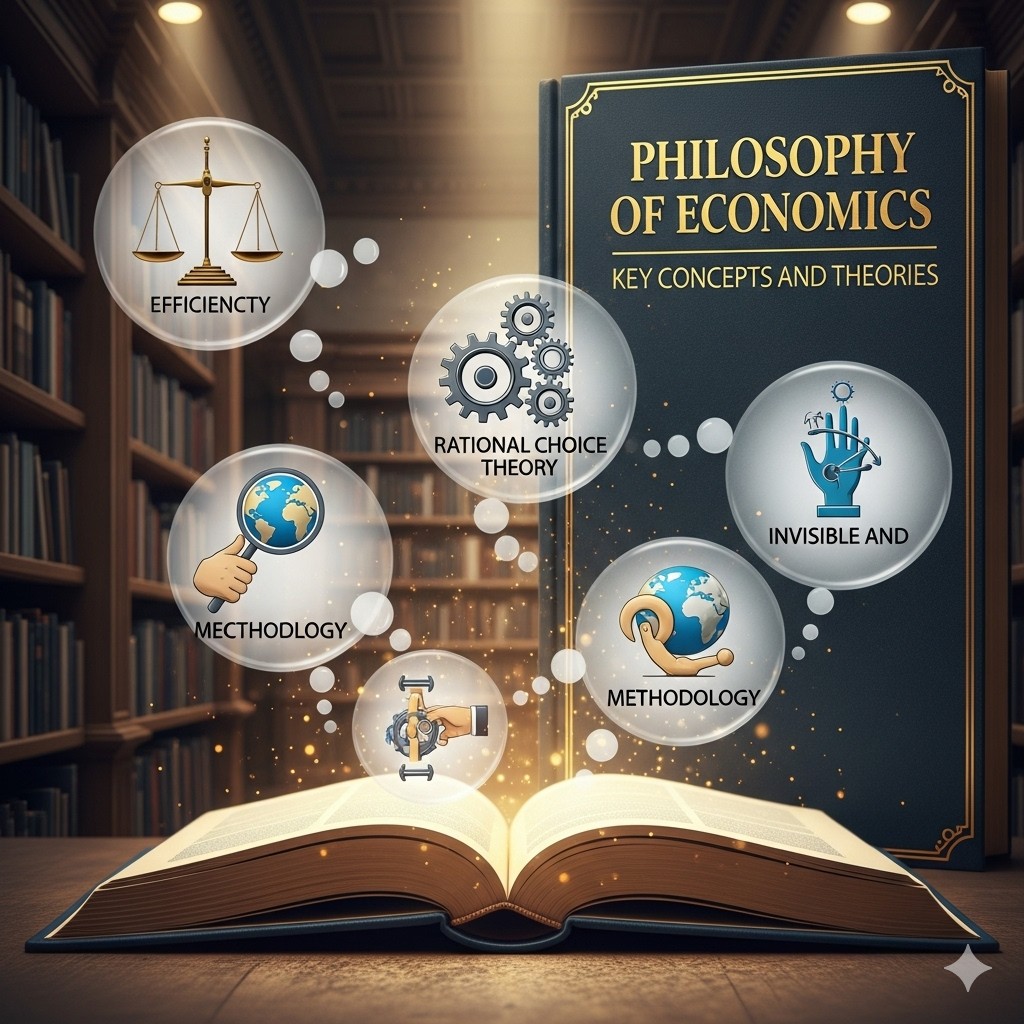The Philosophy of Economics: Key Concepts and Theories
This interactive guide explores the fundamental questions at the heart of economic science. The philosophy of economics examines the assumptions, methods, and ethical implications of how we study and structure our economies. It asks "why" we think about economics the way we do, questioning everything from the nature of value to the role of government.

Major Economic Schools of Thought
Different economic philosophies offer vastly different perspectives on how economies work and what our goals should be. This section allows you to compare the core tenets of major schools of thought. Click on a school to see its description and how it scores on key philosophical dimensions in the chart below.
Core Principles: Micro vs. Macro
Economic analysis is typically divided into two main branches. Microeconomics focuses on the behavior of individual agents like households and firms, while macroeconomics looks at the economy as a whole. Below are the foundational principles that guide each field.
Microeconomics
-
●
Supply and Demand: The core model of price determination in a market. Prices settle where the quantity demanded by consumers equals the quantity supplied by producers.
-
●
Utility Maximization: Assumes that individuals make choices to maximize their own satisfaction or "utility," given their budget constraints.
-
●
Opportunity Cost: The value of the next-best alternative that must be forgone to pursue a certain action. It's a fundamental concept in decision-making.
Macroeconomics
-
●
Aggregate Variables: Focuses on economy-wide phenomena, such as Gross Domestic Product (GDP), inflation, unemployment, and economic growth.
-
●
Business Cycles: The study of fluctuations in economic activity, including periods of expansion (growth) and contraction (recession).
-
●
Monetary & Fiscal Policy: The primary tools governments and central banks use to manage the macroeconomy, influencing interest rates, government spending, and taxation.
From Philosophy to Public Policy
Economic philosophy is not just an academic exercise; it directly shapes the laws and regulations that govern our lives. The underlying beliefs about market efficiency, fairness, and the role of the state determine the policies that are enacted. Explore the flow from idea to implementation below by clicking on each stage.
1. Philosophical Stance
Core beliefs about human nature and markets.
2. Economic Principle
A guiding theory derived from the philosophy.
3. Public Policy
A specific government action or inaction.
Click a node to see an explanation.